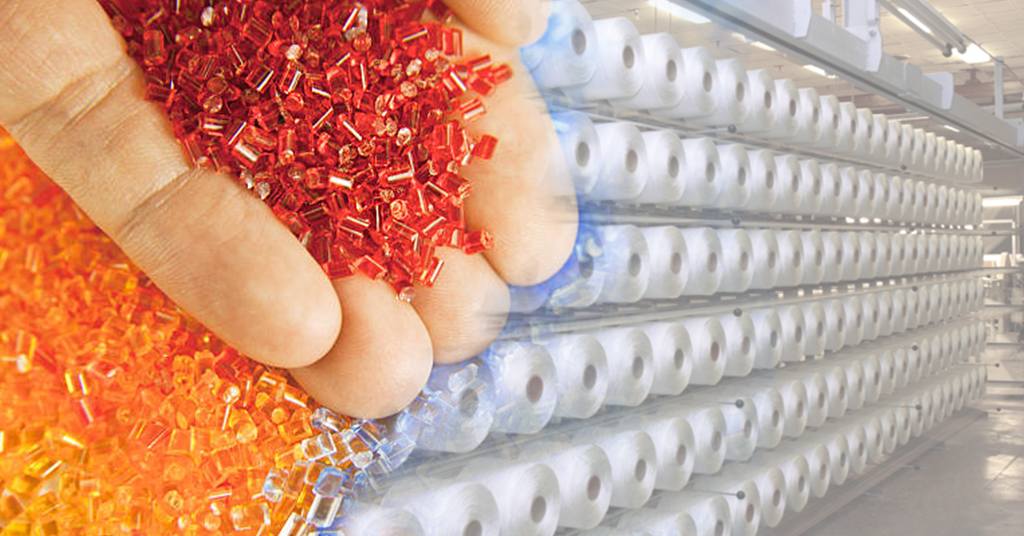Welcome To ChemAnalyst

New Delhi: The Department of Chemicals and Petrochemicals (DCPC) held a meeting with various industry players including primary manufacturers of polymers, trade associations, and domestic promotion councils. The DCPC, which operates under the Ministry of Chemicals and Fertilizers for the Government of India, rejected the plastic industry value chain's demands for the imposition of import duty on polymer imports and the implementation of a quality control order on value-added plastics.
During a recent meeting with industry stakeholders, officials from the DCPC asked for suggestions but avoided discussing contentious topics such as import duty levies and quality control orders. However, as attendees did not raise any other issues, there were concerns that the meeting would end abruptly without any further discussion.
Fortunately, the DCPC official eventually agreed to address the issue of the dumping of polymers and finished value-added plastic products that have had a negative impact on Indian producers for several years.
As per a meeting attendee who provided an overview of the proceedings, an official from the DCPC requested industry representatives to focus on discussing topics other than import duty on polymer or finished plastic products.
Additionally, the official requested that participants refrain from discussing the quality control order that was made known by the Bureau of Indian Standards (BIS) and has been extended periodically. However, despite the official's requests, industry players insisted on discussing these crucial topics, citing their importance for the entire plastic value chain.
Domestic polymer producers in India have reported a concerning increase in the dumping of plastic raw materials from foreign countries. This has prompted primary producers to request a rise in import duties for polymers such as Polyvinyl Chloride (PVC), Low-Density Polyethylene (LDPE), and linear Low-Density Polyethylene (LLDPE), to 12.5 percent from the current rate of 7.5 percent. The domestic producers are suffering due to the influx of imported materials, leading to a need for action to protect their interests.
According to data compiled by the DCPC, India's import of linear low-density polyethylene skyrocketed by more than 245 percent, reaching a monthly average of US$64.45 million between December 2022 and February 2023. This is a substantial increase compared to the monthly average import of 18.67 between the fiscal years FY2017-18 and FY2021-22.
Similarly, chlorinated polyvinyl chloride (CPVC) resin witnessed a rise of almost 204 percent, amounting to US$89.45 million between December 2022 and February 2023, in contrast to the fiscal years FY2017-18 and FY2021-22. There was also a significant increase in the import of other types of polymers in the early part of 2023.
The domestic value-added plastics importers have objected to the proposed increase in polymer prices. The plastics producers have appealed to the government, pointing out that the rise in import duty on polymers would result in increased input costs for them.
As a result, consumers would have to bear the brunt of higher prices of plastic products. The increase in import duty would inevitably make the import of plastic products non-viable in the Indian markets, leading to a surge in their import.
The plastic producers have requested the government to implement a quality control regulation for both the raw materials and the finished products in comparison. They argued that the order would not only restrict the influx of low-quality products but also single-handedly supervise imports. A participant highlighted that a massive influx of inferior quality materials is being imported to India, which poses a serious threat as it directly competes with domestic products, such as toys, and negatively impacts their sales.
It has been suggested by participants that India should impose a higher import duty, at least 20 percent instead of the current 10 percent, on finished plastic products. In addition, there is a need for quality control norms for high-quality imported products, which will ultimately reduce the import of finished products.
It is worth noting that for some finished plastic products, the import duty is already at 15 percent, but it remains 'nil' for imports from ASEAN countries due to trade agreements. Another participant has recommended that India negotiate better terms for plastics imports from these countries to support domestic products and minimize imports. The participant wishes to remain anonymous.
It is notable that the current delta margins, or the difference between input and finished product costs, only amount to a small 2.5 percent. To elaborate, the import duty on polymers is 7.5 percent while finished value-added plastic products have a duty of 10 percent. These inadequate delta margins make plastics processing an illogical pursuit in India due to high interest rates on working capital and labor expenses. Suggestions from industry experts urge the government to increase the delta margin to at least 10 percent.
We use cookies to deliver the best possible experience on our website. To learn more, visit our Privacy Policy. By continuing to use this site or by closing this box, you consent to our use of cookies. More info.
